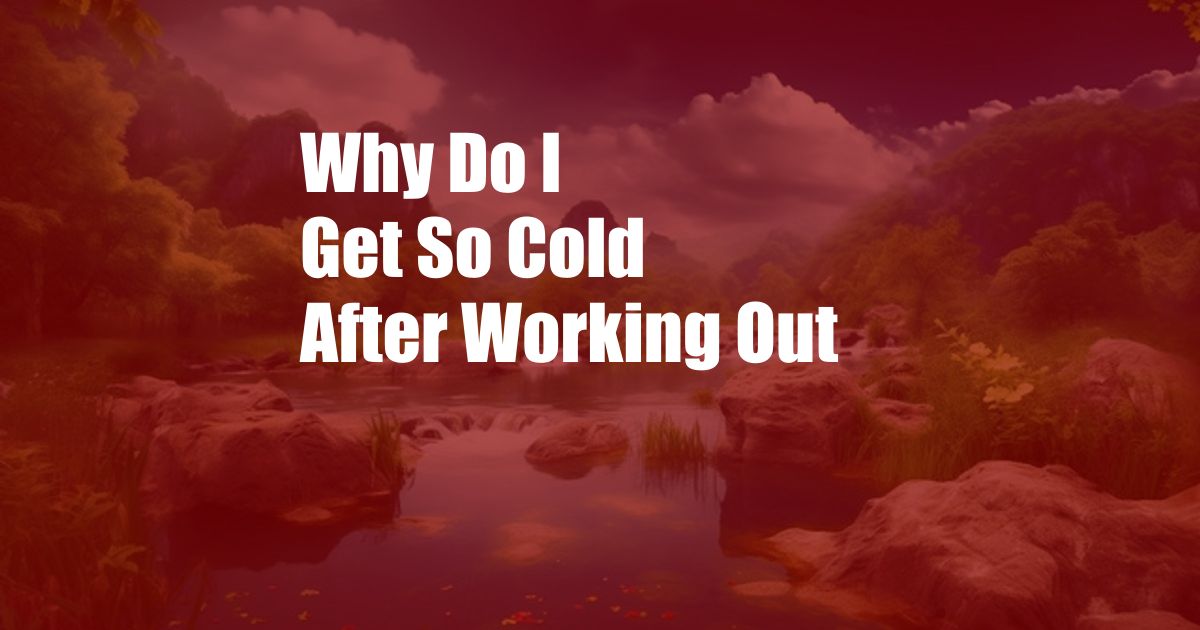
Why Do I Get So Cold After Working Out?
Have you ever gotten out of a hot workout and immediately felt like you had leaped into an igloo? This icy sensation is known as “post-exercise shivering” or “exercise-induced hypothermia” and is more common than you think. Here’s a closer look at this phenomenon and what you can do to curb the chill.
When you exercise, your body temperature rises to meet increased metabolic demands. As a result, blood vessels near your skin’s surface dilate, pumping more warm blood to the skin’s surface to dissipate heat. However, when you stop exercising, your body’s thermoregulatory system shifts gears. Blood flow to the skin’s surface decreases, and blood is diverted to your core to preserve vital organs.
Core Body Temperature
This shift in blood flow causes your skin temperature to drop, triggering shivering. Shivering is an involuntary muscle response that generates heat to help raise your body temperature back to normal. In most cases, post-exercise shivering subsides within a few minutes as your body gradually adjusts to the lower metabolic state. However, if you have exercised intensely or prolonged, you may experience shivering for a longer period.
Certain factors can increase your susceptibility to post-exercise shivering. These include:
- Environmental conditions: Cold temperatures or windy environments can accelerate heat loss.
- Dehydration: Lack of proper hydration can impair the body’s ability to regulate temperature.
- Inadequate warm-up: A proper warm-up allows your body to gradually increase blood flow to the skin, reducing the risk of post-exercise shivering.
- Certain medical conditions: Hypothyroidism or anemia can affect the body’s temperature regulation.
Expert Tips to Avoid Exercise-Induced Hypothermia
To prevent or reduce post-exercise shivering, follow these expert tips:
- Warm up properly: Before your workout, engage in light cardio and dynamic stretches to increase blood flow to the skin’s surface.
- Stay hydrated: Drink plenty of fluids before, during, and after your workout to support proper blood flow.
- Dress in layers: Wear breathable, moisture-wicking clothing that can be easily removed or added to regulate your temperature.
- Cool down gradually: After your workout, perform a few minutes of light cardio to gradually decrease your heart rate and body temperature before stopping abruptly.
- Change into dry clothing: Damp clothing can increase heat loss. Change into dry clothes as soon as possible after your workout.
If you experience severe or prolonged shivering, it’s essential to consult a healthcare professional to rule out any underlying medical conditions and receive appropriate treatment.
FAQ on Post-Exercise Shivering
Q: Why do I shiver after exercising in warm weather?
A: Even in warm weather, your body can still lose heat through sweat evaporation. This cooling effect can trigger shivering if your body is not able to regulate its temperature effectively.
Q: Can post-exercise shivering be dangerous?
A: In most cases, post-exercise shivering is a normal physiological response. However, if you experience severe or prolonged shivering, it may indicate an underlying medical condition that requires attention.
Q: How long does post-exercise shivering typically last?
A: The duration of post-exercise shivering varies depending on the intensity and duration of your workout, as well as environmental conditions. In most cases, it subsides within a few minutes, but it can last longer if you are dehydrated or have exercised intensely.
Embrace the Shiver
Post-exercise shivering is a natural response to the body’s need to regulate temperature. By following these tips and understanding the reasons behind this phenomenon, you can minimize the chill and enjoy the benefits of your workout without feeling like a popsicle. So, the next time you feel the shivers after a hard workout, embrace it as a sign that your body is recovering and preparing for your next fitness challenge.
Did this article help clarify the mystery of post-exercise shivering? Share your thoughts and experiences in the comments below.